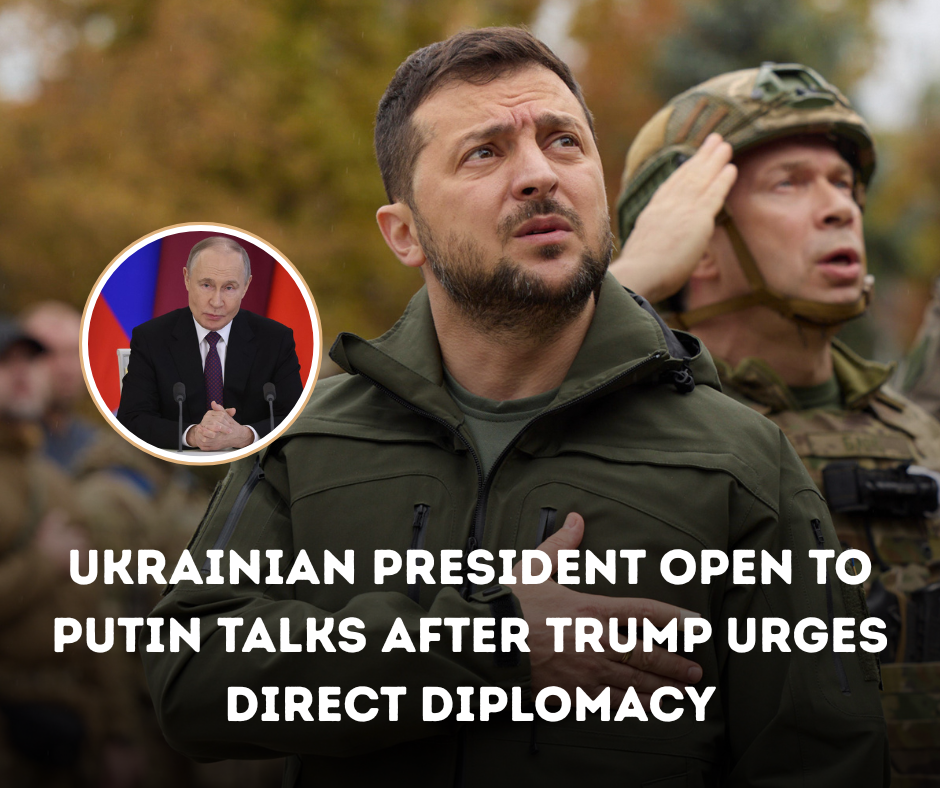Ukrainian President Volodymyr Zelensky has expressed a willingness to meet with Russian President Vladimir Putin, following remarks from former U.S. President Donald Trump urging Ukraine to enter direct negotiations with Russia “immediately.” The development marks a potentially significant shift in tone as the war in Ukraine continues into its third year with no clear resolution in sight.
A Measured Response to Trump’s Call for Dialogue
In a recent statement, Zelensky said he remains open to the idea of direct talks with Putin—but only under the right conditions. His offer comes shortly after Trump publicly encouraged Ukraine to pursue immediate negotiations with Russia, arguing that diplomacy is the quickest path to peace and suggesting he could bring the war to an end swiftly if re-elected.
Zelensky acknowledged Trump’s comments but emphasized the importance of Ukrainian sovereignty and territorial integrity. “We are not against dialogue,” he said, “but peace cannot come at the expense of justice or the independence of our nation.”
A War With Far-Reaching Impact
The ongoing conflict between Russia and Ukraine has devastated communities, displaced millions, and strained global economies. For many Americans—particularly older adults concerned about market volatility, inflation, and international stability—the war’s ripple effects have been deeply felt.
The potential for peace talks has raised hopes among some observers that diplomacy could finally take hold. However, skepticism remains, particularly over whether Russia would negotiate in good faith or demand concessions that Ukraine and its allies find unacceptable.
Trump’s Growing Influence on Foreign Policy Debate
Trump’s recent comments have reignited debate in the United States about the country’s role in the conflict. As a leading contender for the 2024 presidential election, his views are shaping national conversation on everything from military aid to global diplomacy.
Critics say urging Ukraine to negotiate now—while parts of its territory remain under occupation—risks rewarding aggression. Supporters argue that encouraging talks could help prevent further loss of life and economic hardship, both abroad and at home.
What Comes Next?
Whether or not a meeting between Zelensky and Putin will actually take place remains uncertain. Trust between the two nations is at an all-time low, and past attempts at negotiation have failed to produce lasting results. Still, the openness to dialogue—however cautious—may signal a broader shift toward exploring non-military solutions to a grinding war.
For many watching from afar, especially older Americans with a long view of history, the idea of leaders sitting down to talk instead of continuing to fight is a welcome sign. As global pressures mount, the world waits to see whether words can finally start to replace weapons.

Leave a Reply